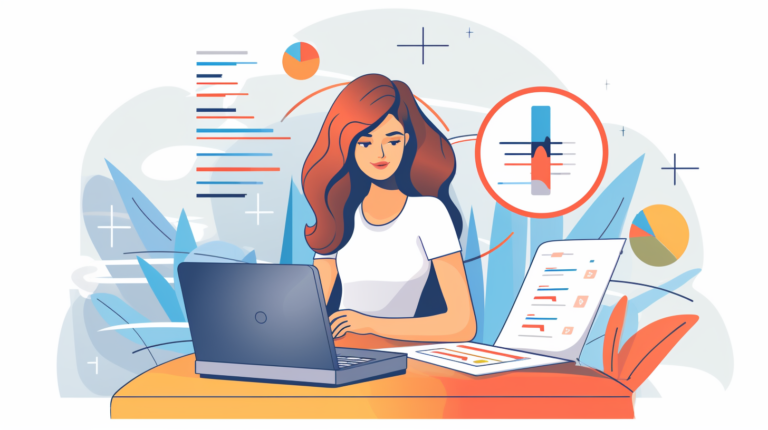Investing Your Money vs Paying Off Debt: Which Is Better?

Navigating the perplexing question of whether to focus on investing money or paying off debt first is a scenario many of us find all too familiar. As someone who has faced this quandary, read countless articles and digested studies – including one revealing 30% of Americans wrestle with the same dilemma – I’m right there in the trenches with you.
This blog aims to dispel doubts by breaking down both routes’ pros and cons, providing clarifying insights into your financial decision-making process. Ready for some illuminated understanding and a sigh of relief from this persistent worry? Let’s dive in!
Key Takeaways
- Paying off debt can make you feel free. You don’t worry about money, your credit score may get better and you have extra cash to use.
- Investing means using your money to grow wealth through stocks, bonds or buying things for profit like houses or rare coins. It offers good gains over time but comes with risk too.
- Consider the interest rate of your debt: pay it off if it’s high, invest when rates are low as returns might be more than cost.
- Check where you stand on retirement timeline before choosing which option is better.
- Make a plan after looking at income versus expenses—it should cover all costs and start an emergency fund first then focus on debts and investing in balance.
Understanding Debt and Investment
To make a wise choice between paying down debt or investing, you must first grasp what these two concepts mean. Debt, in simple terms, means money owed – it could be high-interest credit card debt or low-interest mortgage debt.
On the other hand, investment refers to using your resources with an expectation of generating income or profit like buying stocks or bonds in companies. Now that we have set a clear distinction, let’s dive deeper into these two integral aspects of financial planning.
Definition of Debt

Debt is money that you have to pay back. Think about this like a loan from the bank or using a credit card. You borrow money and then must pay it off later plus some extra cost, called interest.
If you owe on your house or student loans, that’s also debt. Even if it’s not paid into chunks right away, you still need to give what you borrowed back. Handling debt right is key! Ignoring it can lead to big troubles like high costs and damaged credit scores.
Definition of Investment
Investment is about using your money to make more money. You put some of your cash in a place where it can grow, like the stock market or bonds. This is part of financial planning.
Investing may also mean buying items that can bring you profit later on, such as property, art or rare coins.
This strategy has many upsides but comes with a risk too—you could lose your funds if things go wrong. But smart investment choices tend to offer higher returns over time due to compound interest—your money makes extra dough which then makes even more! With right planning and wise steps, investing helps you reach financial goals sooner.
Pros and Cons of Paying Off Debt First
Choosing to pay off debt first certainly has its allure, bringing about peace of mind and improved credit scores. On the flip side, you may miss potential gains from investments, a key driver in wealth accumulation.
Benefits of Clearing Debt
Clearing debt is great for your life. It makes you feel free from any worry about money. You can focus on other things you want to do. With no debt, your credit score gets better too.
That’s good news if you want to take out a loan or buy a house later on! Plus, it frees up cash that you can use in different ways, like going on a vacation or starting an emergency fund.
Over time, paying off debt also lets you save money because you’re not paying interest anymore. This saving acts as a certain return and aids towards financial stability down the road.
Potential Drawbacks

Paying off debt first has a few downsides. You might miss out on good chances to put money into things like stocks or bonds. These options can help you grow your wealth over time. It’s also easy to lose the perks of compound interest.
When your money earns more money, that’s what we call compound interest! So, if you delay putting cash into investments, it may not grow as much as it could have. Plus, some kinds of investments can give tax breaks! Paying all your debts right now might mean giving up those savings too.
Investing while in debt has risks but sticking only with paying down debt may slow wealth growth and keep financial stability just out of reach.
Advantages of Investing Early
Investing early offers the benefit of long-term financial growth. You get to maximize your earning potential through compound interest; essentially, your money earns more money over time.
Not only that, but there are incredible tax benefits you can take advantage of if you jump on investing as soon as possible. The sooner you start placing your money into diversified investments like the stock market or mutual funds, possibly even real estate, the more prosperous and financially stable a life you’re likely to lead.
Finally, it’s crucial to foresee how these returns could assist in reaching important financial goals such as retirement planning or wealth accumulation faster than traditional savings alone ever could – regardless of market volatility.
Long-term Financial Growth
I started putting my money into a mix of stocks and bonds early. Over many years, this made me a decent amount of money. The more time you give your investments to grow, the bigger they can get thanks to compound interest.
This is when the returns on your investments start earning too! Regular check-ins helped me keep track as well. Adjusting my strategy from time to time ensured good financial growth for the long haul.
Tax Benefits
I want to make clear how investing early comes with tax benefits. This can be a big help for people who wish to save and invest more money. You might know about tax cuts or credits that go with putting money into retirement accounts.
It’s pretty neat because this means you get to keep more of your cash in the long run! A tip though, talk to a financial advisor if you’re not sure what works best for you. They are pros at this and can guide you well.
These tax goodies may not always work the same way for folks paying off debt, but every case is unique so it’s worth looking into!
Factors to Consider When Choosing Between Debt Payoff and Investment

Before making a decision between paying off debt or investing, look at the interest rate associated with your debt. Is it high-interest like credit card debt? Or low-interest such as a mortgage? Next, evaluate your retirement timeline.
Are you nearing up on retirement and need to boost those savings? Or perhaps you’re starting early in your career with years ahead to build wealth through an investment strategy. Now consider your overall amount of debt – is it manageable or overbearing on your monthly budget? These three factors; interest rates, retirement timeline and the total sum of everyday liabilities should guide this essential financial planning move to ensure smart money management practices for long-term financial stability.
Interest Rate of Debt
The money you owe may have a high or low interest rate. This can affect how much it costs to borrow money. A high interest rate means you pay more over time. In this case, it might be best to pay off your debt first.
Yet, low-interest rates mean less extra cost on your debts. At these times, it might be better to put your money into investments instead of paying off the loan fast. You could earn more from the investment than the extra cost of your debt.
Retirement Timeline
Your retirement timeline plays a big part in choosing between paying down debt or investing. If you still have many years till retirement, investing might be a wise move. Early investment lets your money grow over time.
Think of compound interest as your friend here; it boosts your savings faster the longer you invest. On the contrary, if retirement is just around the corner for you, focusing on clearing your debts may make more sense.
It helps ensure financial stability in retirement years and leads to stress-free life after work ends. So, check where you stand on that timeline before deciding anything.
Overall Debt Amount
I need to look at how much money I owe. High debt can be bad for me. It may stop me from reaching my money goals. Paying off a tall pile of bills first might be a smart choice for some people.
But not all types of loans are the same. Some, like credit cards, have high costs if I don’t pay them off fast. For low-cost loans like student debt or home loans, it could make more sense to put extra cash into buying shares instead.
How to Balance Between Investing and Paying Off Debt

Finding a balance between paying off debt and investing is a hard task. Here are some tips that can help:
- Look at your income against your expenses.
- Make a plan of action based on what you see.
- Plan need to cover all monthly bills, food costs and other needed items.
- Begin an emergency fund before anything else.
- Work on paying off high – interest debt first like credit card debt so it doesn’t grow.
- Don’t just make minimum payments towards debts.
- Try to save any extra money from paychecks for investment or more debt payment.
- Start small in the stock market, bonds or mutual funds as per flexibility of your budget.
- Go slow and don’t take big risks while investing in the start.
- Reach out to a financial advisor if you are lost and need help or ideas.
- Think about retirement needs when making your finance moves.
Conclusion
You can choose to pay off your debt or invest. Which is best? This will depend on your goals, and how you feel about money and risk. Talk with an expert who knows about money matters for help in deciding.
FAQs
1. What is better, investing your money or paying off debt?
Whether you choose to invest first or pay off debt depends on many things. You need to look at the rate of return on investments and the cost of your debts.
2. How can Fidelity, SmartAsset or John Hancock help in personal finance management?
These firms offer financial advice which includes effective budgeting and asset allocation strategies for long-term savings like retirement accounts.
3. Can you explain debt-to-income ratio?
Your debt-to-income ratio shows how much money you owe compared to what you make. A high number might make it harder to get loans, while a lower one means less risk.
4. What are short-term debts and why should I care about them?
Short-term debts are owed within one year’s time – such as loan repayments . If not paid off quickly they may hurt your credit score.
5.What is diversification in an investment portfolio ?
Diversification spreads out risk across many different types of assets like stocks, bonds and fixed income securities so if one area does badly others might still do well
6.When would someone opt for bankruptcy versus managing their own finances?
Filing for bankruptcy could be a hard choice when faced with huge amounts of uncontrolled low-interest or high-interest debt – but it may harm future chances at financial independence.






